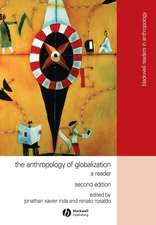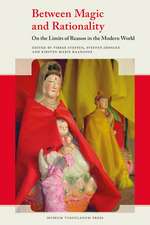Ilongot Headhunting, 1883-1974: A Study in Society and History
Autor Renato Rosaldoen Limba Engleză Paperback – 31 mai 1980
This study, a history of the kind of people who are supposed to have one, challenges the fashionable view that so-called primitives live in a timeless present. The conventional wisdom, that such societies are static, is shown by the author to be an artifact of anthropological method. By piecing together extended oral histories and written history records, the author found that headhunting among the Ilongots of Northern Luzon, Philippines, was not an unchanging ancient custom, but a cultural practice that has shifted dramatically over the course of the past century. Headhunting stopped, resumed, and stopped again; its victims at various periods were fellow Ilongots, Japanese soldiers, and lowland Christian Filipinos; it took place as surprise attack, planned vendetta, or distant raid against strangers.
Placing headhunting in its social, cultural, and historical contexts requires a novel sense of how to use biography, recorded history, and narrative in the analysis of small-scale, non-literate local communities. This study combines historical and ethnographic method and documents the inherent orchestration of structure, events, time, and consciousness. The book is illustrated with 34 photographs.
Placing headhunting in its social, cultural, and historical contexts requires a novel sense of how to use biography, recorded history, and narrative in the analysis of small-scale, non-literate local communities. This study combines historical and ethnographic method and documents the inherent orchestration of structure, events, time, and consciousness. The book is illustrated with 34 photographs.
Preț: 266.52 lei
Nou
Puncte Express: 400
Preț estimativ în valută:
51.00€ • 52.69$ • 42.43£
51.00€ • 52.69$ • 42.43£
Carte tipărită la comandă
Livrare economică 19 martie-02 aprilie
Preluare comenzi: 021 569.72.76
Specificații
ISBN-13: 9780804712842
ISBN-10: 0804712840
Pagini: 328
Dimensiuni: 152 x 229 x 28 mm
Greutate: 0.5 kg
Ediția:1
Editura: Stanford University Press
Colecția Stanford University Press
ISBN-10: 0804712840
Pagini: 328
Dimensiuni: 152 x 229 x 28 mm
Greutate: 0.5 kg
Ediția:1
Editura: Stanford University Press
Colecția Stanford University Press
Recenzii
"A finely crafted and engrossing book. . . . Artfully written from a historical perspective, the book effectively and vividly demonstrates the central importance of headhunting as an organizing principle of Ilongot society and as a powerful motivating force in Ilongot individual and group behavior. . . . It is a significant work both ethnographically and methodologically. It is full of unique and exciting data on Ilongot feuding, raiding, and peacemaking. . . . Methodologically, it is important in demonstrating a way of producing diachronic ethnography or ethnographic history through the use and interweaving of data drawn from narratives, life histories, field observations, and historical records. . . . Ilongot Headhunting is likely to become a classic because of its interesting subject and its highly successful approach to ethnography."
—Albert S. Bacdayan
,Journal of Asian Studies
—Albert S. Bacdayan
,Journal of Asian Studies
"A unique blend of ethnography, ethnohistory, historiography, and personal reflection. . . . Rosaldo's text is not just decorated but genuinely advanced by thoughtful, perfectly placed ethnographic photographs. . . . Rosaldo's impressive study should be read as ethnography, as history, and as a challenging theoretical treatise."
—James A. Boon
,Man
—James A. Boon
,Man
"There is little doubt that it will be held in high regard for years to come. The Ilongot make interesting subjects, and Rosaldo has told their story with a degree of literary finesse rare in academic writing. In addition, there is much in the author's methodology that can instruct future anthropologists and historians."
—Paul A. Rodell
,Journal of Asian History
—Paul A. Rodell
,Journal of Asian History
Notă biografică
Renato Rosaldo is Associate Professor of Anthropology at Stanford University.









